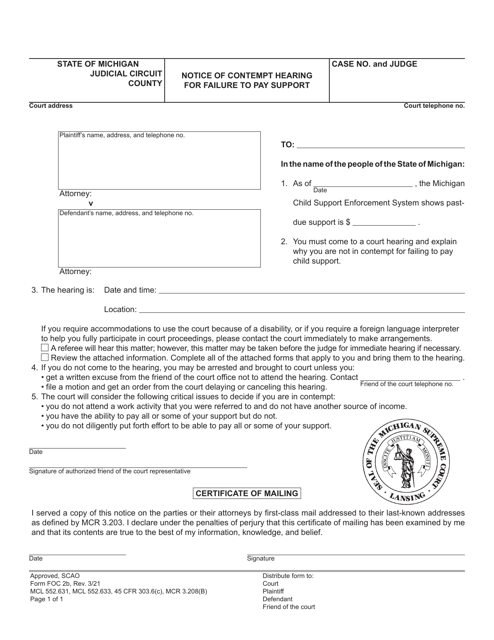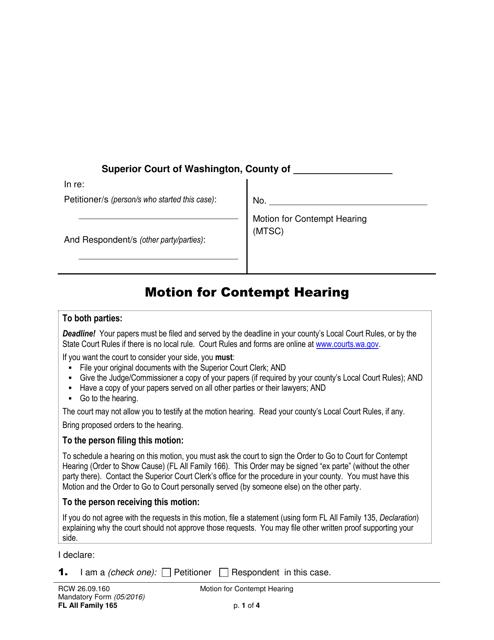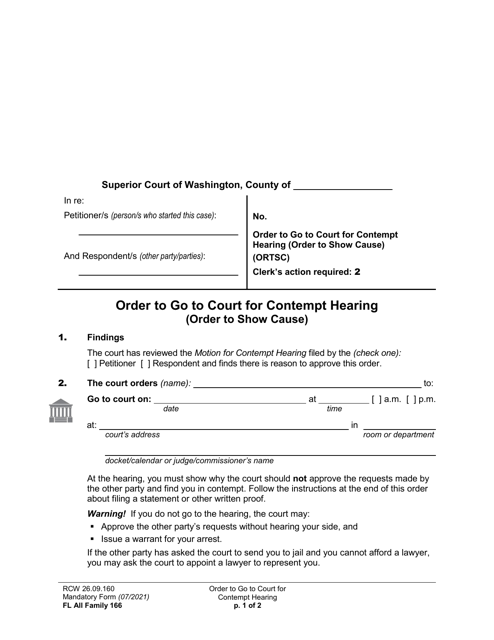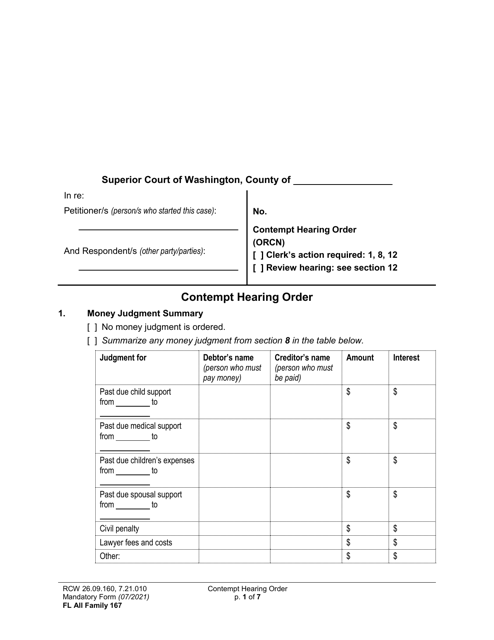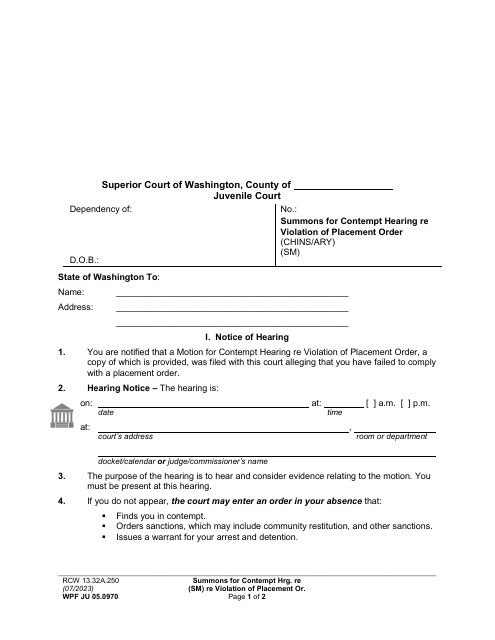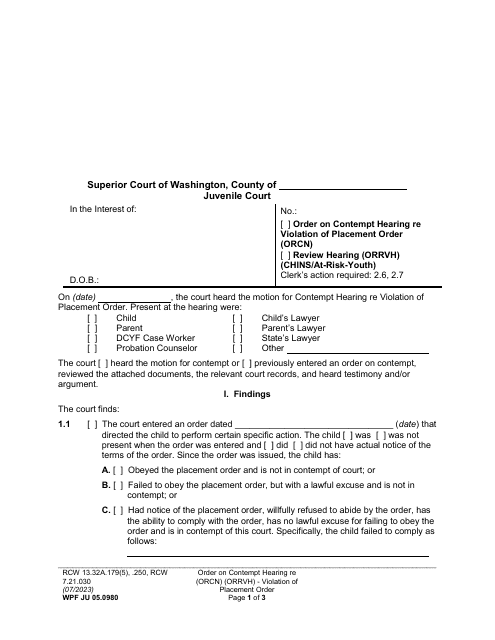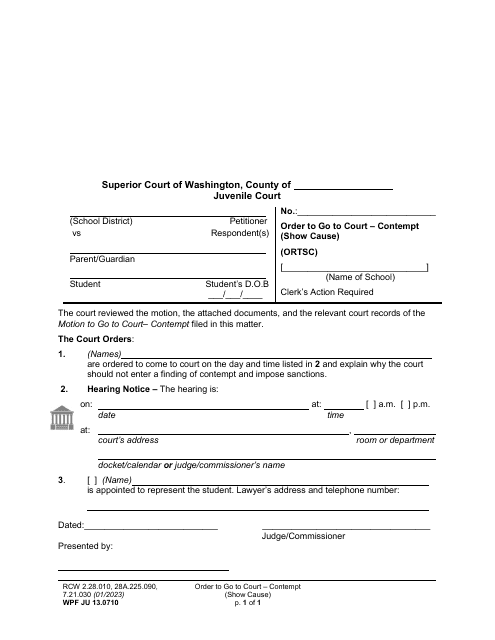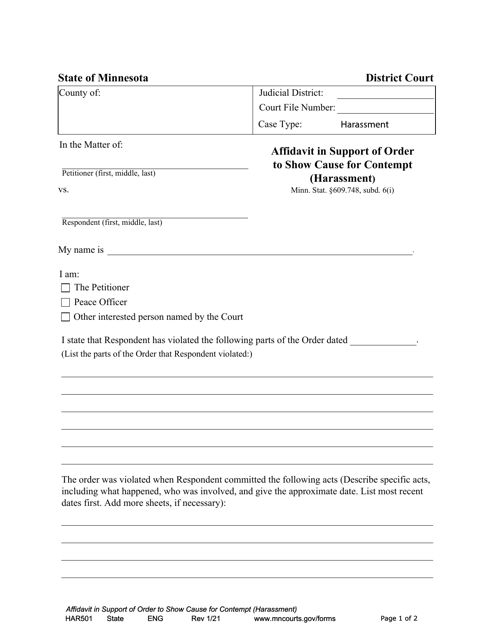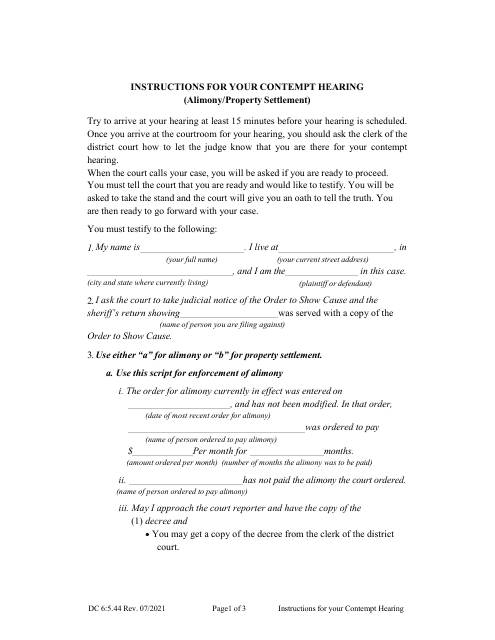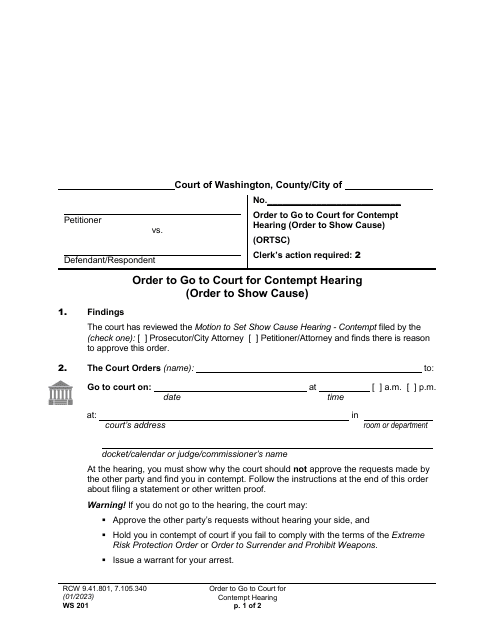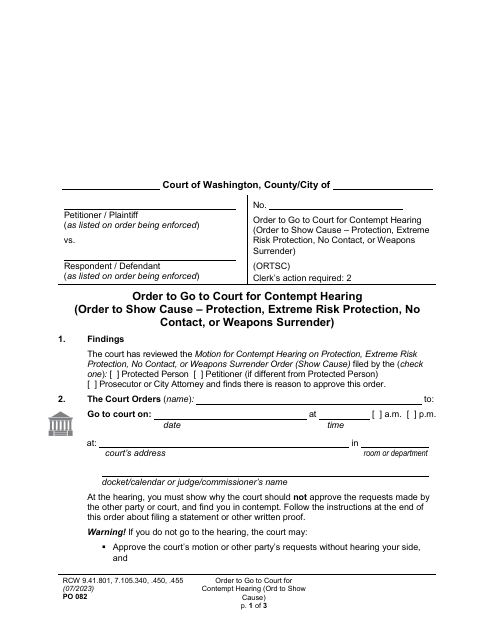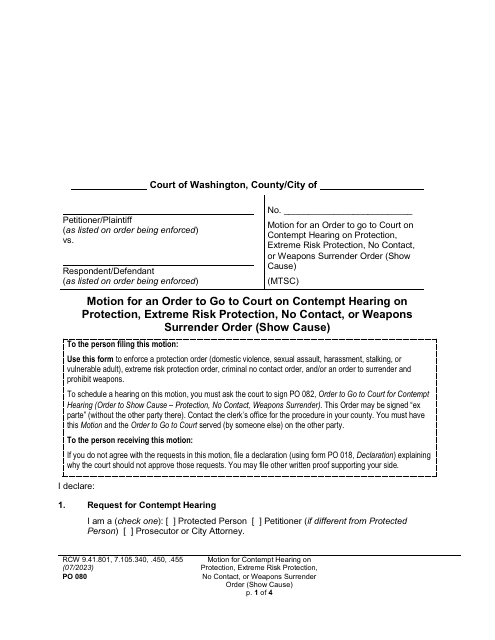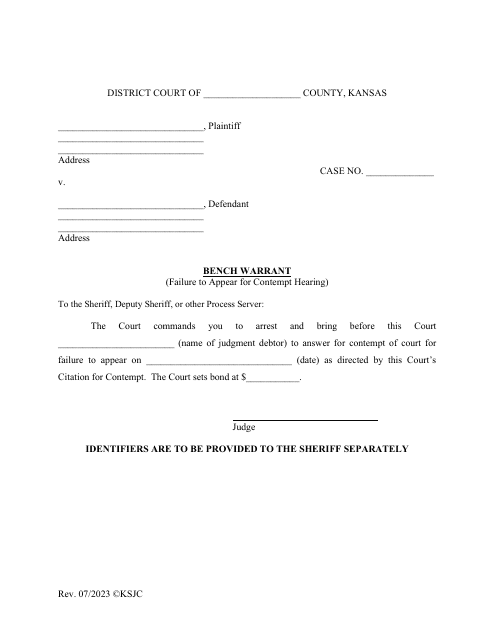Contempt Hearing Templates
Contempt Hearings - Holding Individuals Accountable for Violating Court Orders
Contempt hearings, also known as contempt of court hearings, are critical legal proceedings that address cases of individuals failing to comply with court orders. These hearings play a crucial role in ensuring the enforcement of court orders, maintaining the integrity of the judicial system, and upholding the rule of law.
During a contempt hearing, the court examines evidence and testimonies to determine if a person has willfully violated a court order. The court then decides whether to impose sanctions or penalties on the individual found in contempt. These penalties can range from monetary fines to imprisonment, depending on the severity of the violation.
The documents related to contempt hearings facilitate the proper functioning of the legal system. They include forms such as the "Form FOC2B Notice of Contempt Hearing for Failure to Pay Support" in Michigan and the "Form FL All Family166 Order to Go to Court for Contempt Hearing (Order to Show Cause)" in Washington. These documents assist in notifying individuals of their scheduled hearings and outlining the consequences they may face if found in contempt.
Moreover, instructions for the contempt hearing process, like the "Form DC6:5.44 Instructions for Your Contempt Hearing (Alimony/Property Settlement)" in Nebraska, offer guidance on what to expect and how to navigate this legal proceeding. Similarly, the "Form PO082 Order to Go to Court for Contempt Hearing (Order to Show Cause - Protection, Extreme Risk Protection, No Contact, or Weapons Surrender)" in Washington addresses cases involving protection orders and weapons surrender.
In some cases, individuals may fail to appear for their scheduled contempt hearings. In such instances, a bench warrant, such as the one issued for "Failure to Appear for Contempt Hearing" in Kansas, may be issued, compelling the person's arrest and their appearance before the court.
Contempt hearings are essential for upholding the authority of court orders and ensuring compliance. The documents associated with these hearings facilitate the procedural aspects of the legal process, ensuring that individuals are aware of the consequences of their actions and are given a fair opportunity to defend themselves. Whether it is enforcing child support, restraining orders, or property settlement agreements, contempt hearings play a vital role in maintaining the integrity of the judicial system and protecting the rights of all parties involved.
Documents:
18
This form is used for filing a motion for a contempt hearing in Washington state family court cases. It is used when one party believes the other party has violated or failed to comply with a court order, and is seeking to hold that party in contempt.
This type of document provides instructions for your contempt hearing related to alimony or property settlement in Nebraska.

